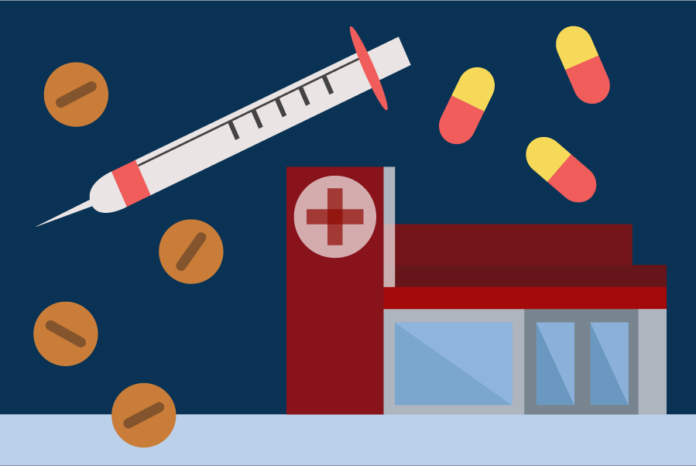Stigma surrounding drug overdose is a serious issue, and the pandemic has only led to further relapse due to inaccessible health care
By BRANDON NGUYEN — science@theaggie.org
Over 100,000 deaths were attributed to drug overdoses, largely due to the opioid epidemic, during a yearlong period that ended in April 2021, according to the Center for Disease Control and Prevention (CDC). This was a 28.5% increase in deaths compared to the year prior during the same time frame.
Dr. Aimee Moulin, a professor of emergency medicine and the director of behavioral health at the UC Davis Medical Center, described what it means to be a victim of substance abuse.
“Usually people with addiction experience a lot of barriers in terms of getting addiction treatment: long intakes, long waits, paperwork and insurance,” Moulin said. “So we need to treat addiction as an emergency.”
Starting treatment as early as possible will help with recovery and will reduce the high overdose rates from fentanyl and opioid use disorder. With the Substance Use Navigator Program under the Department of Emergency Medicine at UC Davis Health, patients with addiction are quickly identified and are offered support and treatment 24/7 from both clinicians and counselors.
Patients are placed on medications such as buprenorphine, morphine or methadone, which are effective at reducing withdrawal symptoms. Then, they are connected with patient navigators, who are certified drug and alcohol counselors who help connect patients with rehabilitation programs and can customize treatment plans.
Tommie Trevino, a former patient and now a patient navigator at UC Davis Health for over five years since the program’s establishment, described how his experiences resonate with the patients and how his motivational counseling has helped many of his patients turn their lives around.
“Learning recovery takes time and does not happen in a day,” Trevino said. “When I talk to people now, it’s like, ‘Hey, you’re not going to get straight today; you’re not going to stop using drugs today.’ You’ve developed a lot of bad habits; addiction is like a disease. It’s like a trigger bag, because once you have it, it’s with you for the rest of your life so you have to learn how to manage it, and I‘ve had great success teaching not only patients how to manage it, but also the families and everyone around them.”
Both Moulin and Trevino recognize addiction as a “disease” and emergency that needs to be normalized and emphasize the need to eliminate the stigma associated with substance abuse.
“Substance abuse is a treatable medical illness, and it’s life-threatening,” Moulin said. “So we just need to kind of normalize treatments so that people can feel safe to come in and disclose that they’re suffering, and we can offer help. There’s this myth that it’s a moral failing, which is demonstrably not true, and there’s this bias that we have in our society, and then compounded on that is the fact that it’s really the only medical disease that is also a crime.”
In efforts to spread and normalize addiction as a medical illness, UC Davis Medical Center is collaborating with CA Bridge, a nonprofit organization with operations built around the Substance Use Navigation Program to provide support and treatment to all substance abuse patients.
“Most medical providers do not view addiction treatment as part of their job, so people who use drugs are often stigmatized, sometimes treated for other conditions and sent on their way with a list of often inaccessible specialty addiction clinics,” according to the CA Bridge website. “Our goal is to transform addiction treatment by ensuring that every hospital in California provides 24/7 access to evidence-based care.”
Written by: Brandon Nguyen — science@theaggie.org
Editor’s Note: An earlier version of this article contained language to describe addiction that is not in accordance with Aggie standards. The article has been updated, and we apologize for any harm caused. Writers and editors are trained in our sensitivity standards and will be reminded — if you have any questions, concerns or comments, please do not hesitate to reach out to managing@theaggie.org and editor@theaggie.org.









